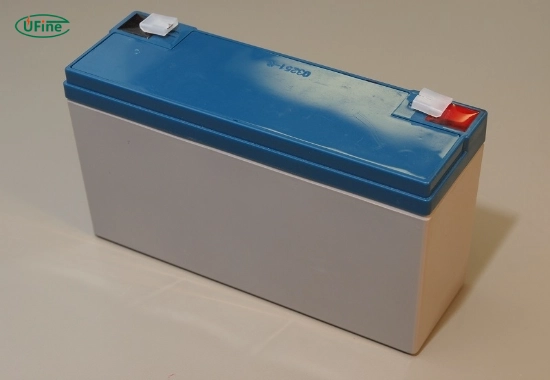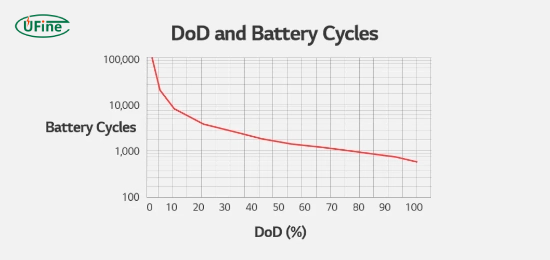Understanding the lifespan of a 6 volt deep cycle battery is essential for anyone relying on these batteries for energy storage, especially in applications like RVs, solar power systems, and marine environments. This article will explore various factors influencing the longevity of these batteries, how to maximize their lifespan, and answers to frequently asked questions.
Part 1. What is a deep cycle battery?
A deep-cycle battery is designed to be regularly deeply discharged using most of its capacity. Unlike standard car batteries, which provide short bursts of high energy, deep-cycle batteries are built to provide sustained power over a longer period. They are commonly used in applications where a consistent energy supply is needed, such as RVs, boats, and off-grid solar systems.
Part 2. Lifespan of a 6 volt deep cycle battery
The lifespan of a 6 volt deep cycle battery can vary significantly based on several factors. Generally, these batteries can last anywhere from 3 to 10 years, depending on usage and maintenance practices.
Typical Lifespan: On average, a well-maintained 6 volt deep cycle battery lasts 5 to 7 years. However, some users report their batteries lasting even longer with optimal care.
Factors Affecting Lifespan:
- Depth of Discharge (DoD): Regularly discharging the battery to its total capacity can shorten its lifespan. Ideally, it would help if you aimed for a DoD of around 50%. This means that if your battery has a capacity of 200 amp-hours (Ah), you should not use more than 100 Ah before recharging.
- Charging Practices: Proper charging techniques can greatly influence battery life. Overcharging or undercharging can lead to premature failure. Always use a charger designed for deep-cycle batteries and follow the manufacturer’s charging times and voltage guidelines.
- Temperature Conditions: Extreme temperatures can affect battery performance and longevity. Keeping batteries in a cool, dry place is recommended. High temperatures can accelerate chemical reactions inside the battery that may cause damage, while low temperatures can reduce capacity temporarily.
Part 3. Types of 6 volt deep cycle batteries
There are several types of 6 volt deep cycle batteries, each with distinct characteristics:
- Flooded Lead-Acid Batteries are the most common type and require regular maintenance. With proper care, they typically last 3 to 6 years. Users must check the water levels regularly and add distilled water as necessary.
- AGM (Absorbent Glass Mat) Batteries are sealed and maintenance-free, offering a life span of about 4 to 8 years. They are less prone to leakage and can handle deeper discharges better than flooded batteries.
- Gel Batteries: Similar to AGM but with gel electrolyte, gel batteries can last 5 to 10 years, depending on usage. They are also sealed and do not require maintenance, but they may be more sensitive to overcharging.
- Lithium-Ion Batteries: Although more expensive upfront, lithium-ion batteries can last up to 15 years, making them an excellent long-term investment. They offer faster charging times and higher efficiency compared to traditional lead-acid options.
6 Volt Deep Cycle Battery vs 12 Volt: Which Is Right for You?
Part 4. Factors influencing battery life of a 6 volt deep cycle battery
Several factors play crucial roles in determining how long your 6 volt deep cycle battery will last:
- Usage Patterns: Frequent heavy discharges will significantly reduce the lifespan of your battery. If you often use your battery until it is nearly empty before recharging it, you may notice a decrease in overall performance over time. Light usage with regular recharging is ideal for extending life.
- Maintenance Practices: Regular checks on water levels (for flooded batteries), cleaning terminals, and ensuring proper charging can significantly extend battery life. Refrain from maintaining maintenance can lead to sulfation or corrosion that diminishes performance.
- Quality of the Battery: Higher quality batteries tend to have better longevity and performance characteristics. Investing in reputable brands known for durability can save you money in the long run by reducing replacement frequency.
- Environmental Conditions: The environment where you store or use your battery also matters. Avoid exposing your battery to extreme heat or cold, negatively impacting its performance and lifespan.
Part 5. How to extend the lifespan of your battery?
To maximize the lifespan of your 6 volt deep cycle battery, consider these best practices:
- Avoid Deep Discharges: Try not to discharge below 50%. This practice helps maintain capacity over time and prevents damage from excessive cycling.
- Use a Smart Charger: Invest in a quality charger that prevents overcharging and undercharging. Smart chargers automatically adjust their output based on the battery’s state.
- Regular Maintenance: For flooded lead-acid types, check electrolyte levels regularly and top up with distilled water as needed. Clean terminals periodically to prevent corrosion.
- Temperature Control: Store batteries in a temperature-controlled environment whenever possible. If you live in an area with extreme temperatures, consider insulating your batteries or using climate-controlled storage options.
Part 6. Common applications for 6 volt deep cycle batteries
6 volt deep cycle batteries are versatile and widely used in various applications:
- RVs and Campers: Providing power for lights, appliances, and other electronics during trips away from shore power is crucial for comfort during travels.
- Solar Energy Systems: Storing energy generated from solar panels when sunlight is unavailable helps maximize renewable energy usage.
- Golf Carts: Powering electric golf carts for extended periods on the course ensures that players can enjoy their game without worrying about running out of power.
- Marine Applications: Supplying energy for boats and other watercraft where reliable power is essential enhances safety and enjoyment on the water.
Part 7. FAQs
-
How long does a fully charged 6 volt deep cycle battery last?
A fully charged 6-volt deep cycle battery can typically provide power for several days, depending on the load applied. Light loads may allow it to last up to a week or more, while heavier loads may require recharging within a couple of days. -
Can I use two 6 volt batteries instead of one 12 volt?
Yes! Connecting two 6 volt batteries in series will create a 12 volt system. This setup is common in RVs as it often provides better performance and longevity than single 12 volt batteries. -
What is the best way to charge a 6 volt deep cycle battery?
It is ideal to use a smart charger designed for deep-cycle batteries. These chargers manage the charging process effectively by preventing overcharging and ensuring optimal charging cycles. -
Are lithium-ion batteries worth the investment compared to lead-acid?
While lithium-ion batteries have a higher initial cost, their longer lifespan (up to 15 years) and lower maintenance requirements often make them more cost-effective over time than traditional lead-acid options. -
How do temperature extremes affect my battery?
Extreme cold can temporarily reduce capacity, while extreme heat can accelerate chemical reactions inside the battery that may lead to damage or a reduced lifespan. Keeping your battery within recommended temperature ranges is crucial for longevity.
Related Tags:
More Articles

Aluminum Air Battery Design: Materials, Assembly & Efficiency Tips
An aluminum air battery uses aluminum and air to generate power. Learn its materials, assembly steps, and tips to boost energy output and efficiency.
7 Advantages of a Heated Lithium Battery in Cold Climates
Looking to power batteries in freezing temps? Heated lithium batteries excel in cold climates. Here are 7 key benefits and how they work.
How to Choose the Best Floor Scrubber Battery for Commercial Cleaning?
Selecting the ideal floor scrubber battery ensures a long runtime, rapid charging, and minimal maintenance for efficient commercial cleaning operations.
Battery for Blower vs Battery for Leaf Vacuum: Which One Should You Choose?
Battery for blower vs leaf vacuum—learn the key differences in power, fit, and runtime to choose the right battery for your outdoor tool needs.
How to Choose the Right Battery for Blower?
Choosing the right blower battery? Consider voltage, capacity, chemistry & usage. This guide helps match the best battery for peak performance.





